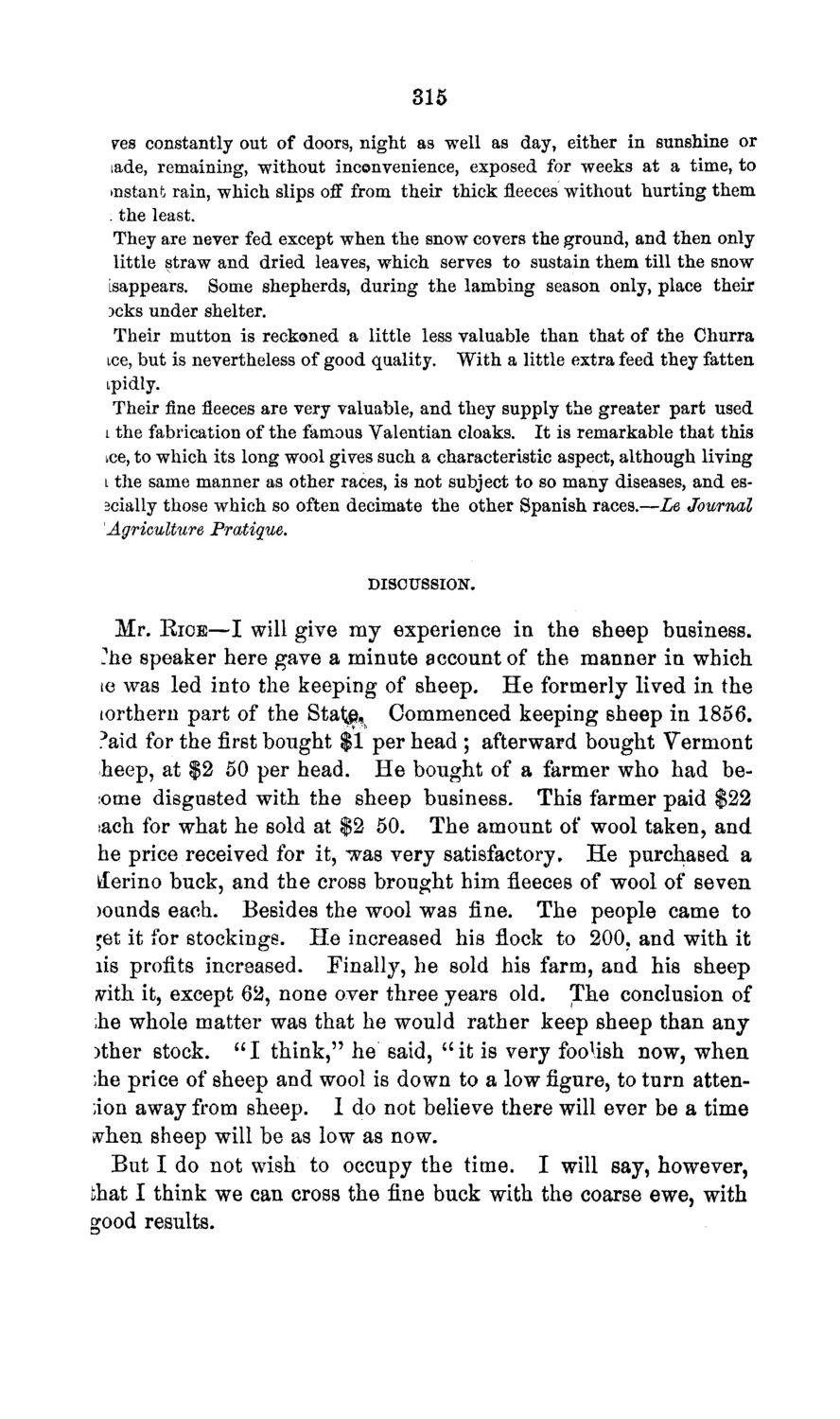| |
| |
Caption: Board of Trustees Minutes - 1869
This is a reduced-resolution page image for fast online browsing.

EXTRACTED TEXT FROM PAGE:
315 vea constantly out of doors, night as well as day, either in sunshine or lade, remaining, without inconvenience, exposed for weeks at a time, to instant rain, which slips off from their thick fleeces without hurting them L the least. They are never fed except when the snow covers the ground, and then only little straw and dried leaves, which serves to sustain them till the snow isappears. Some shepherds, during the lambing season only, place their ^cks under shelter. Their mutton is reckoned a little less valuable than that of the Churra Lee, but is nevertheless of good quality. With a little extra feed they fatten Lpidly. Their fine fleeces are very valuable, and they supply the greater part used L the fabrication of the famous Valentian cloaks. It is remarkable that this ice, to which its long wool gives such a characteristic aspect, although living t the same manner as other races, is not subject to so many diseases, and esscially those which so often decimate the other Spanish races.—Le Journal Agriculture Pratique. DISCUSSION. Mr. E I O E — I will give my experience in the sheep business. ?he speaker here gave a minute account of the manner in which te was led into the keeping of sheep. He formerly lived in the torthern part of the S t a t ^ Commenced keeping sheep in 1856. 5 aid for the first bought $1 per head ; afterward bought Vermont heep, at $2 50 per head. He bought of a farmer who had be:ome disgusted with the sheep business. This farmer paid $22 lach for what he sold at $2 50. The amount of wool taken, and he price received for it, was very satisfactory. He purchased a Merino buck, and the cross brought him fleeces of wool of seven >ounds each. Besides the wool was fine. The people came to ;et it for stockings. He increased his flock to 200, and with it lis profits increased. Finally, he sold his farm, and his sheep vith it, except 62, none over three years old. The conclusion of ihe whole matter was that he would rather keep sheep than any )ther stock. " I think," he said, " i t is very foolish now, when ;he price of sheep and wool is down to a low figure, to turn atten;ion away from sheep. 1 do not believe there will ever be a time ivhen sheep will be as low as now. But I do not wish to occupy the time. I will say, however, bhat I think we can cross the fine buck with the coarse ewe, with good results.
| |